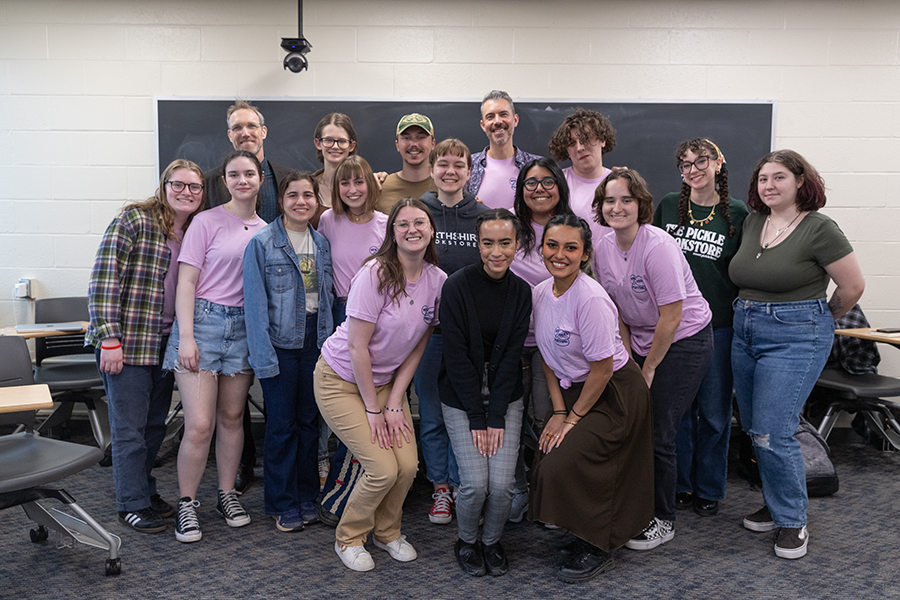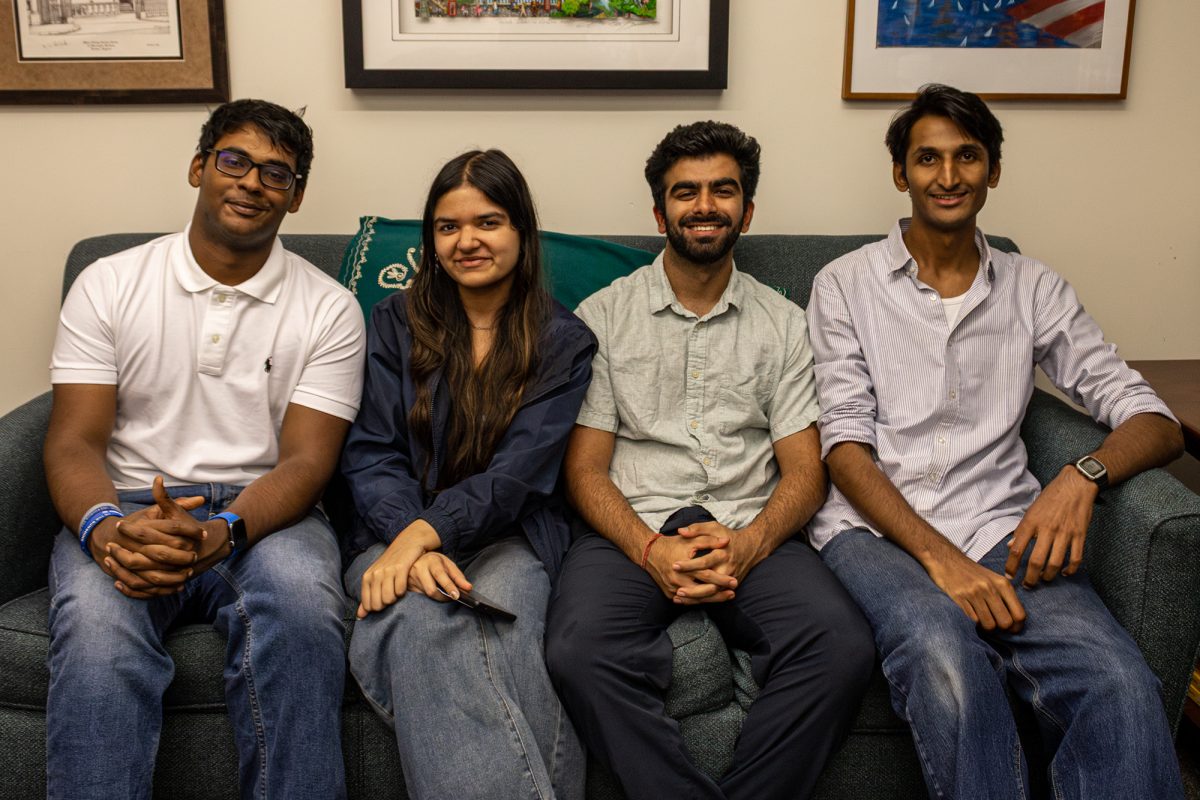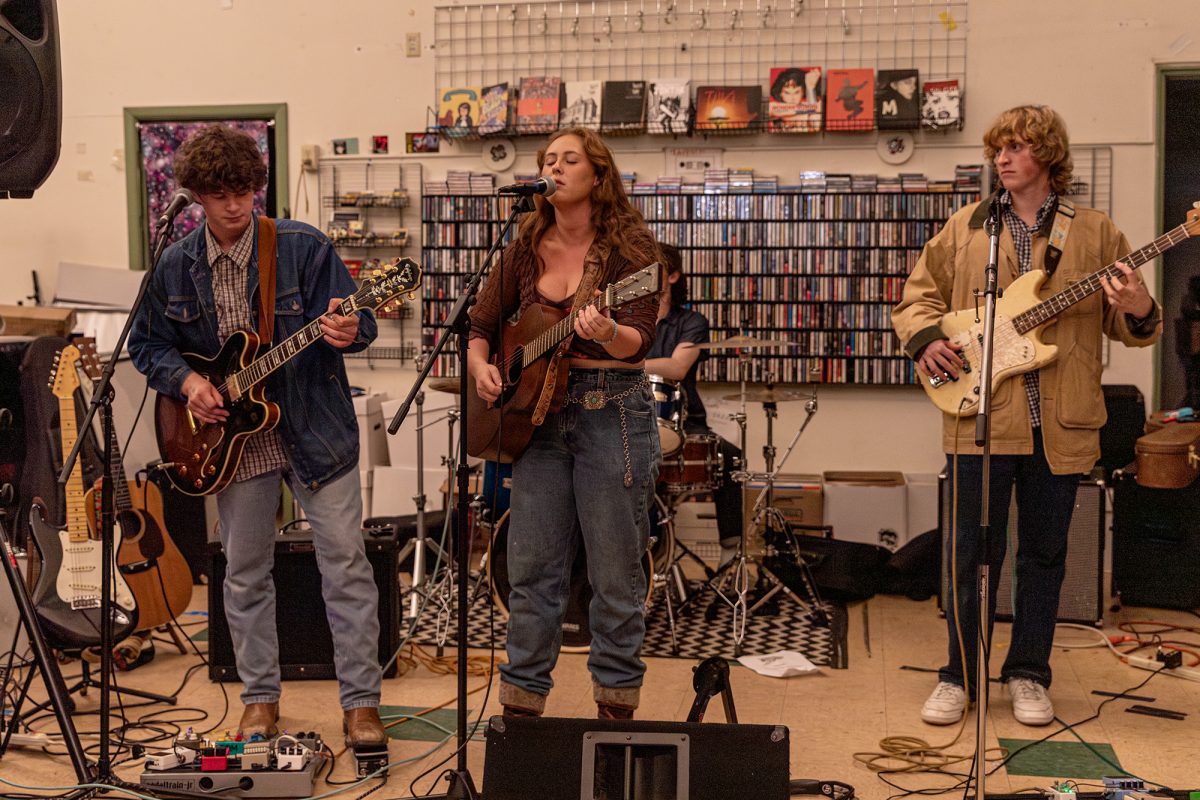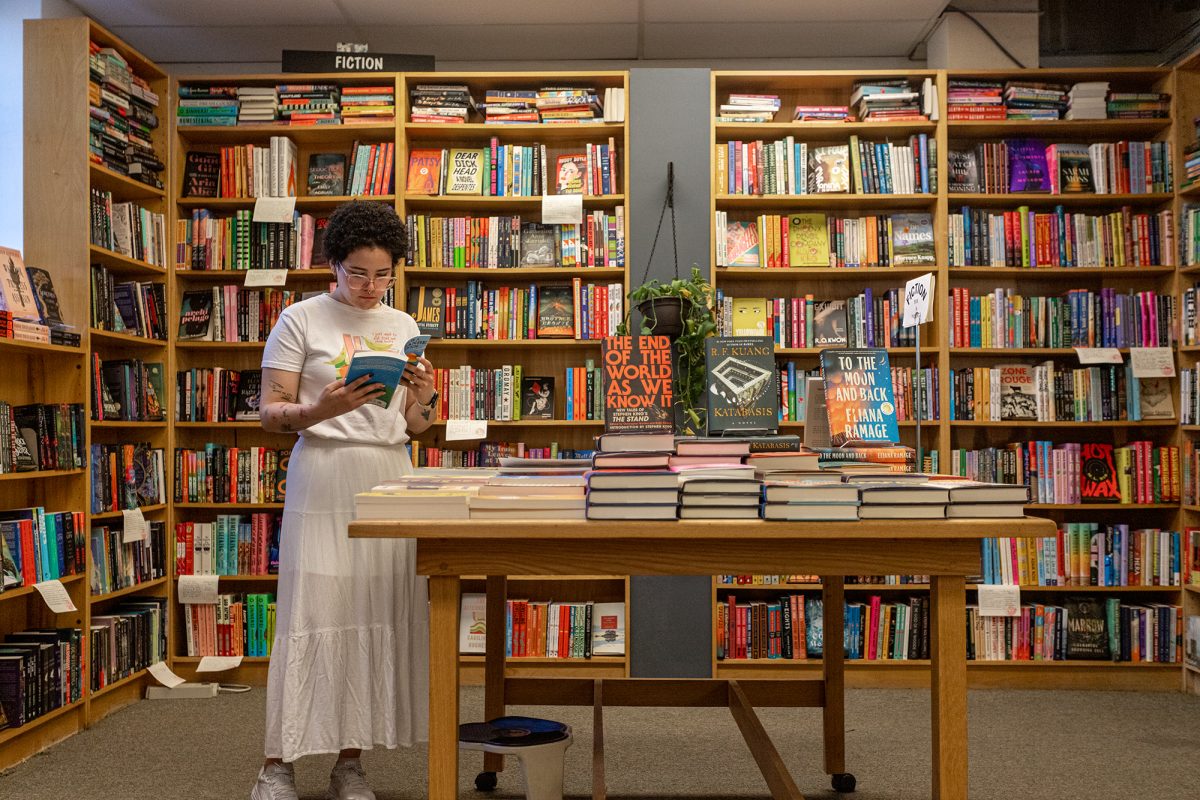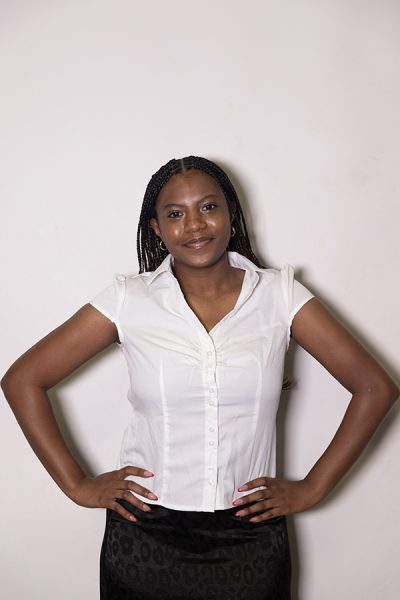Seven newly published authors will read excerpts of their stories for Buffalo Street Books on April 24. This is a part of the Ithaca College writing department’s annual New Voices Festival, which has been occurring for over 10 years. The festival is being held from April 24 to April 26 and places an emphasis on platforming women and writers of color.
The festival was founded in 2013 by Chris Holmes, associate professor and chair of the English Department and Eleanor Henderson, a professor in the Department of Writing, with the intention of giving a platform to new authors and allowing students to interact with authors personally.
Every part of the festival, from the authors chosen to the panel discussions being hosted, has been curated by a group of students who have spent the whole semester planning the event. The festival allows students to engage with authors on a personal level through attending live readings, panels about the writers’ intersectional identities and how that relates to their work, and providing opportunities to have discussion with the artists in a casual setting.
The event gives opportunities to authors from marginalized identities who work in the literary industry to share their work on a large scale, ensuring that a platform is given to authors who may not have that space.
Holmes said that with the evolution of the event, he saw the importance of having diverse authors as it encouraged conversation between groups, especially when the field they work in does not cater to them. He said the festival in 2023 showed him how important representation is for students who may not see people who share their identities in the career they pursue.
“Last year’s festival ended up being all women and majority women of color,” Holmes said. “They immediately had a bond that everyone could feel. They enjoyed each other so much. They felt so comfortable with each other, and they were able to have dialogues about things that are true to people who have been kept out, gate kept out of some of the big spaces in the literary world.”
The festival this year has a myriad of authors who identify as women of color — authors like Claire Jiménez, whose stories reflect the life she has led as a Puerto Rican woman who grew up in New York City. Holmes said that with each year, the festival continues to think about platforming diverse authors.
The invited authors are paired with a student-guide who has the responsibility of helping the author they are matched with find where they need to go or answer any questions they have about the event. Student-guides study the works of the authors chosen and have to present an introduction on the author they choose.
Senior Emily Trage, one of the student directors who worked on this year’s festival, said that being heavily involved in the planning of the festival and studying the authors’ published work, gave her the rare opportunity to connect with an author on a personal level.
“The more established an author gets in the literary world, the harder it is to access them, the harder it is to make a personal connection with them,” Trage said. “They’ve just gone through the experience of putting their work out there for the first time. It’s really important for students to be able to see what that’s like [and] ask questions to connect with these authors and their experiences. On another level, it’s so heartwarming to meet these authors.”
Holmes is still the faculty director of the festival. He said that when creating the festival with Henderson they wanted the festival to be different each year, evolving to adapt to what students care about. The writers are chosen by the student directors, meaning that each work has a special connection to the students who have been studying it. This year, there will be a staged reading of the play “I’m Gonna Marry You Tobey Maguire” written by Samantha Hurley ’18 in the Hoerner Theater.
“We wanted it to be different from other college based literary festivals,” Holmes said. “The way to make it truly an Ithaca College event was to make it something that individual groups of students were responsible for every year.”
Holmes said the festival changing based on the students who run it not only helps maintain interest with the event, but allows writers to see the impact that their work has on the community.
“[The event] would change and grow and evolve based on student interest,”Holmes said. “Getting students involved makes the writers like it a lot more because they’re excited that students are reading and know a lot about their work.”
Jacob White, associate professor in the Department of Writing and faculty director of the festival, who was invited to the event in 2015 as an author, said he was honored at the amount of effort students put into knowing his work and managing the event.
“In 2015, I was a new voice author,” White said. “It was really touching to see from that perspective how much care and preparation the students put into hosting the writers. [It] was super fun. I was fairly new to the Ithaca community and I got to give readings, engage in panel discussions and party with the other six writers at the time who were visiting.”
Erica Berry, one of the authors featured in the festival this year for her book “Wolfish,” said that creating productive conversation around careers in a creative industry is important, especially when pursuing a career in writing.
This insight is valuable for students involved with the festival, as there are no required majors to become a student director. The student directors this year are Trage, senior writing major April Morales and junior English major Riley Rhoder.
Berry said that when she was growing up she thought that being an author was not a viable career for someone who did not already have wealth.
“I did not know anyone who was an author. I didn’t see it really as a career path,” Berry said. “The people that I did know doing it were married to someone who was really rich. There is no one path to being an author and what students will hear at the New Voices Festival is that each of us has taken different routes to make creative work [or] paid work [and sometimes] those things are the same.”
First-year student Mina Jones, when hearing about the festival, said she appreciated the opportunities the New Voices Festival gives students.
“I think that the [festival] is great for networking especially for liberal arts majors,” Jones said. “As a liberal arts major, it can be hard to network. You have to really put yourself out there. Even when you do put yourself out there, it can be hard to find people that take you seriously. … It’s great that they have a festival specifically for literary arts because writing is important.”
Although the festival starts on April 24, the student-guides and their authors have already spoken to help prepare the authors for the festival. Trage said that as a student director, there is a build-up of anticipation for meeting the authors because of how long they have been studying their work.
“We’ve spent all semester studying their work and geeking out over these books together,” Trage said. “To finally be able to connect with them as people as well, is a really fulfilling experience.”
Berry said that when she met her guides, she appreciated all of the thought they put into reading her work.
“I’ve met my student guides and they’re incredible. … It’s a gift to be read so closely by such smart people who are thinking about my book,” Berry said.
White said the festival provides an opportunity that most people will not experience until after their undergraduate years.
“It’s unique at Ithaca College because I don’t know any other college that provides this kind of experience for undergraduates,” White said. “They’re getting the level of access and immersion that you would more likely find in a [Master of Fine Arts] program in creative writing, or at a national creative writing conference.”
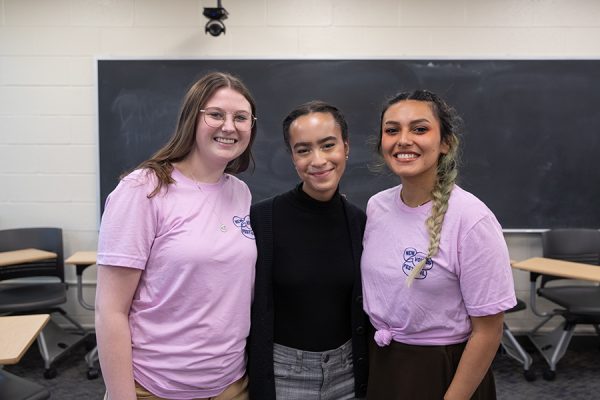
Part of the appeal the festival has is seeing the success of the authors and their newly published works in-between the time they are invited and the time they attend. Recently Jiménez, author of “What Happened to Ruthy Ramirez,” won a PEN/Faulkner Award for Fiction. Her book will be read at the first event of the festival, “The Short Short” at Buffalo Street Books on April 24 at 5:30 p.m.


